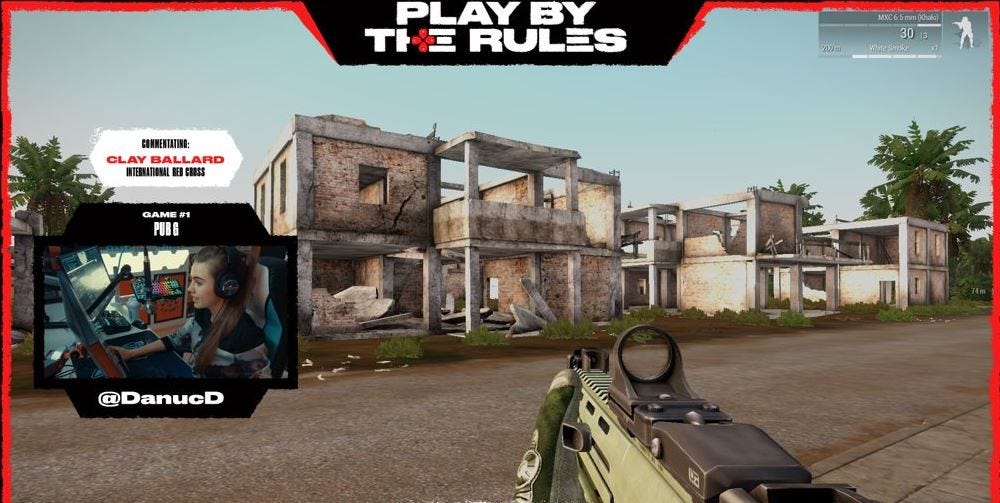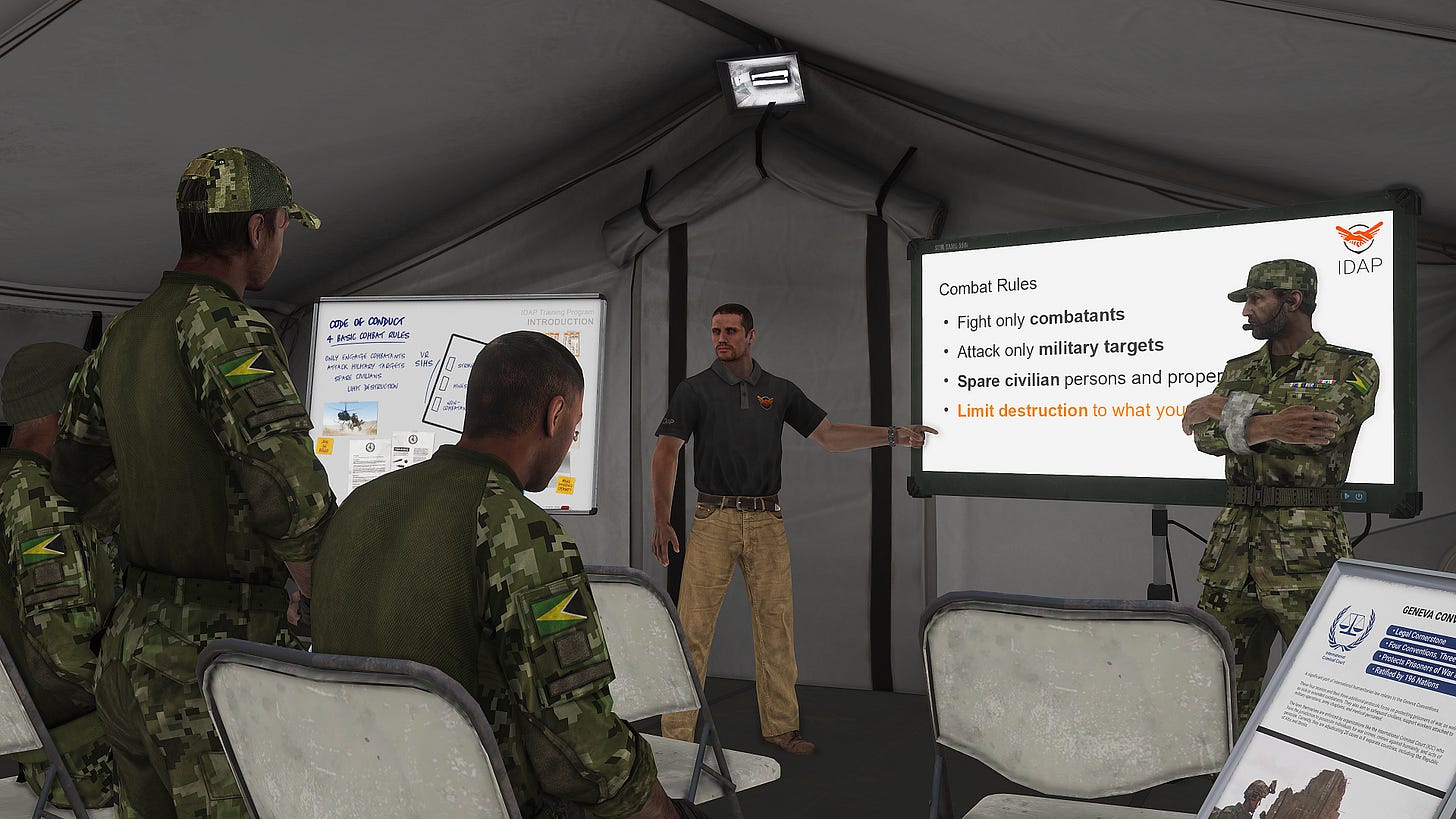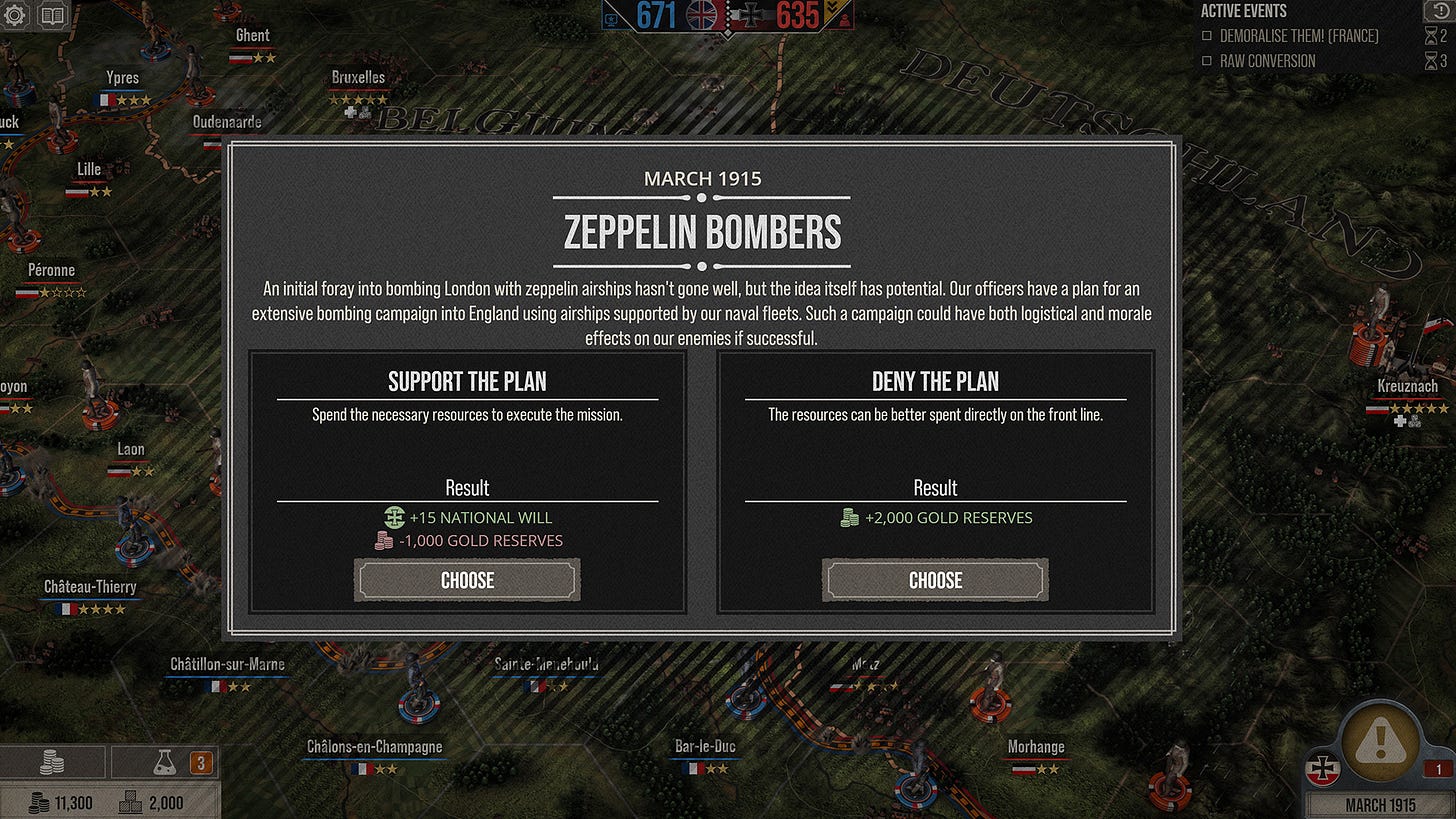Red Cross looks to gamers to help tackle real-life war crimes
ICRC, gamers partner to promote the rules of war.
One of the world's largest and most respected humanitarian groups is looking to gamers for help building awareness and support for the Geneva and Hague conventions in real-life wars.
The International Committee of the Red Cross recently launched an initiative aimed at promoting the laws of war within the gaming community, with hopes that doing so can impact both the understanding of those rules in real-world conflict and perhaps even behavior among current and future fighters of war.
"The initiative recognizes that gamers can be powerful supporters in achieving a better understanding of the importance and value of the laws of war," according to the organization. "Gamers are current or future fighters, members of the military, CEOs, and politicians. Video games can influence users' perceptions about what soldiers are permitted to do during war and may also influence the way combatants behave during today's armed conflicts."
The initiative aims to create a community of supporters around the globe who will help spread knowledge about the rules of war and help ensure that the neutral, impartial, and independent nature of humanitarian activities is understood by a broader audience, according to the group.
Christoph Hanger, spokesperson for the ICRC's special projects, told me that the war between Russia and Ukraine is one of the reasons the group is rolling out this project now.
"We did see a big increase in questions/interest about the rules of war following the start of the international armed conflict between Russia and Ukraine," he said. "This shows us that it's important to disseminate info about the rules of war, e.g., what they are, who they protect, and when they apply, to a broad audience."
The initiative is one of several tools that the organization is using to reach people that "maybe don't necessarily know about these rules or want to learn more about them," he said.
"It's our mandate as the ICRC to do that, and we need to do it in a smart and engaging way on platforms where people are having conversations about the topic or, in this case, are playing games that depict armed conflict."
As part of the initiative, the ICRC will host a live stream on April 15 in which streamers from around the globe will follow a new set of rules in existing first-person shooter games and play by selected rules of war, according to the group. That includes not shooting at downed, but not dead, enemies. not targeting non-violent NPCs, not targeting civilian buildings, and using med kits on anyone injured player you can, be they enemy or friendly.
The ICRC also noted that people can play a Fortnite capture-the-flag creative mode that has incorporated basic rules of war ideas into the game. The ICRC previously partnered with the gaming studio Bohemia Interactive for its Arma 3 Laws of War downloadable content in 2017 and created the first-ever "Liferun" mode on Fortnite Creative mode in 2020 to inject gameplay and messaging about international humanitarian law.
The announcement comes nearly a dozen years after the ICRC first started investigating whether the Geneva and Hague conventions should be applied to the fictional recreation of war in video games.
I broke that story on Kotaku back in 2011. At the time, the ICRC noted that if they agreed those standards should be applied, they might ask developers to adhere to the rules themselves or "encourage" governments to adopt laws to regulate the video game industry.
The organization seemed to quickly back away from the notion of getting governments to adopt laws to enforce the concept. Instead, the group decided to work more directly with developers.
While I still disagree with any idea of having Freedom of Speech constrained by laws or regulations, I wrote at the time that the idea of creating games more closely tied to the realities of war is hard to simply dismiss.
Hanger said the 2017 release of ARMA 3 DLC was an important step for building that relationship between the ICRC and the game development community.
"From our perspective, it opened many doors and is to this day seen as a great success story and really a major milestone of ICRC's engagement with the gaming community around the laws of war," he said. "Video games represent a huge opportunity to spread the word about the importance of the laws of armed conflict and how they are designed to protect the most vulnerable in conflict zones."
The initiative announced this week represents a move to try and bring the community closer to ICRC's core work without taking away the joy and fun of playing first-person-shooter games, Hanger said.
"We want to collaborate hand in hand and develop partnerships that have a tangible and meaningful outcome for International humanitarian law as a common good for humanity," he said. "That being said, we are open to any developers that want to have a conversation about the rules of war or want to collaborate. This does not mean that we want to in any way force developers to incorporate the laws of war into video games but rather to start having exchanges about how these laws are designed to protect each and every one of us in a situation of armed conflict. This is an important message that we, as the ICRC, have a responsibility to promote and disseminate to as many people as possible. Video games and the video game community are an important way to do that, but we are also trying to do that in many other ways, for example, through the use of social media or to influence stakeholders through our humanitarian diplomacy efforts."
The International Committee of the Red Cross, which was formed in 1863 as the oldest organization of the International Red Cross and Red Crescent Movement and has since been awarded three Nobel Peace Prizes, is mandated under the Geneva Conventions to protect the victims of international and internal armed conflicts. That includes war wounded, prisoners, refugees, civilians, and other non-combatants.
Part of that mandate is to promote respect for international humanitarian law – also known as the laws of armed conflict – and universal humanitarian principles.
"Given this mandate and the ICRC's long history and expertise in matters relating to armed conflict, the development and engagement in video games are increasingly crucial looking at the size and the impact this industry has on individuals that are connected to ICRC's core mandate," Hanger said.
He added real-life armed conflict, and its humanitarian consequences are the ICRC's primary concern, with about 22,000 staff carrying out humanitarian activities all over the world every day in the world's worst conflict zones.
"We are often the first organization to arrive on the scene when armed conflict erupts and to attend to the needs of people detained, displaced, injured, or otherwise affected by war and violence," he said. "We also strive to bring about improved compliance with the law of armed conflict and encourage respect for the dignity of people affected by war. With their ever-increasing popularity, video games and the video game community can have a strong influence on what young people, future recruits, and societies, in general, perceive as acceptable or prohibited in situations of armed conflict. That is why we think it is crucial to engage with this community in a smart and engaging way, but of course, our primary focus will always be situations of war and violence and the people affected by those that need our help."
Elsewhere
War is Pyrrhic in The Great War: Western Front
The Queen’s Gambit and Mattel’s Chess
Eyes on with Call of Duty inspired magic shooter Immortals of Aveum









Great story, Brian. Shared with a digital ministry group I'm a part of (Checkpoint Church) as well.